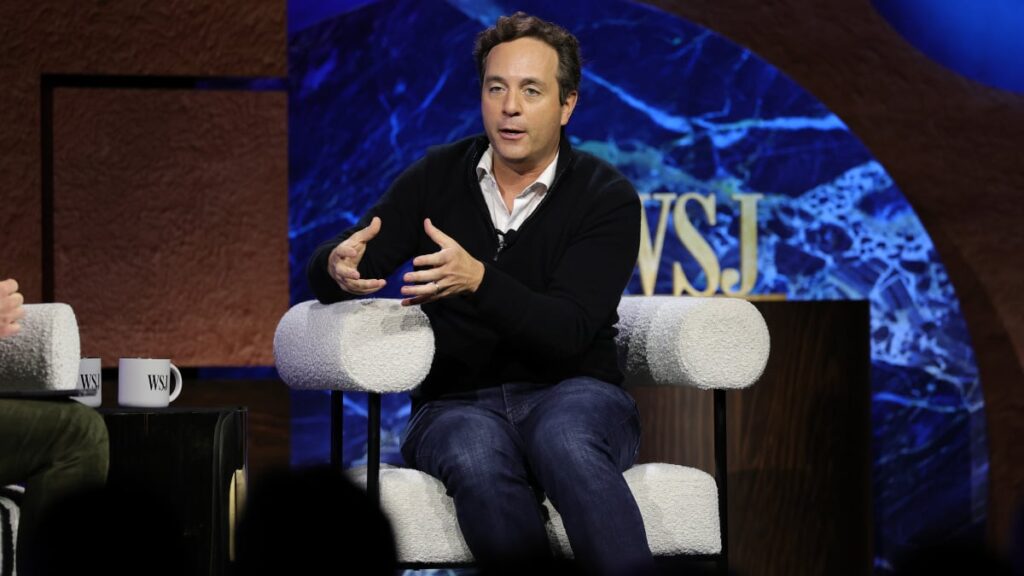Reimagining Tinder: From Hookup Hub to Meaningful Connection Platform
For years, Tinder has been stereotyped as a “hookup app,” often criticized for fostering superficial encounters rather than genuine relationships. However, with new leadership at the helm, there is a concerted effort to redefine its identity and purpose.
Leadership Vision: Transforming Tinder’s Reputation
Spencer Rascoff, the incoming CEO of Tinder’s parent company, Match Group, is acutely aware of the shifting attitudes toward dating apps. In a recent interview with the Wall Street Journal, Rascoff emphasized the need for innovation to revitalize Tinder’s image and user experience. He likened the app to a lively social venue-like a bar-where people gather to forge new connections, and stressed that modernization is essential to attract a broader audience.
Rascoff highlighted that Generation Z, now the dominant demographic on dating platforms, is less interested in casual hookups and more inclined toward meaningful interactions. Data from 2023 indicates that young adults are engaging in less sexual activity and drinking less alcohol compared to previous generations at the same age. This cultural shift necessitates a strategic pivot for Tinder to stay relevant and appealing.
Historical Context and Current Challenges
Since its launch, Tinder has often been labeled as the quintessential “hookup app,” with critics even blaming it for contributing to what some call the “dating apocalypse.” According to a 2023 Pew Research Center survey, approximately 10% of partnered adults in the U.S. met their significant other through a dating app or site. This figure doubles among individuals under 30 and among LGBTQ+ communities, underscoring the platform’s importance in modern matchmaking.
Despite its success, dating apps face ongoing scrutiny for promoting casual sex and superficial judgments. The gamified nature of these platforms can sometimes lead users to forget that behind every profile is a real person with genuine feelings. Trust in these digital spaces has waned, with some lawsuits alleging predatory and addictive behaviors-though many of these cases are now settled or in arbitration.
Strategic Changes and Future Directions
Rascoff’s approach involves a significant overhaul of Tinder’s features, focusing on integrating advanced artificial intelligence tools and enhancing safety protocols. He has expressed a willingness to prioritize user experience over immediate profits, advocating for a “fail fast” mentality-embracing experimentation and learning from mistakes to foster innovation.
As Faye Iosotaluno prepares to step down as Tinder’s CEO in July 2025 after eight years, Rascoff will assume leadership of both Tinder and the broader Match Group. His goal is to steer the platform toward a more authentic and secure environment, aligning with the evolving preferences of younger generations.
While it remains uncertain whether these initiatives will significantly alter Tinder’s public perception, the platform’s ongoing efforts to diversify its features suggest a strategic move to retain relevance among Gen Z users, who are increasingly seeking meaningful connections over fleeting encounters.
Broader Impact and Industry Trends
The landscape of online dating continues to evolve rapidly. As of 2023, digital dating has become a mainstream avenue for forming romantic relationships, with a growing emphasis on authenticity and safety. Platforms that adapt to these cultural shifts-by incorporating AI-driven matching, enhanced privacy measures, and features promoting genuine interactions-are more likely to thrive.
In this context, Tinder’s transformation reflects a broader industry trend: moving away from superficial gamification toward fostering real, lasting connections. This shift not only benefits users but also helps restore trust in digital dating environments, paving the way for healthier and more meaningful relationships in the future.

